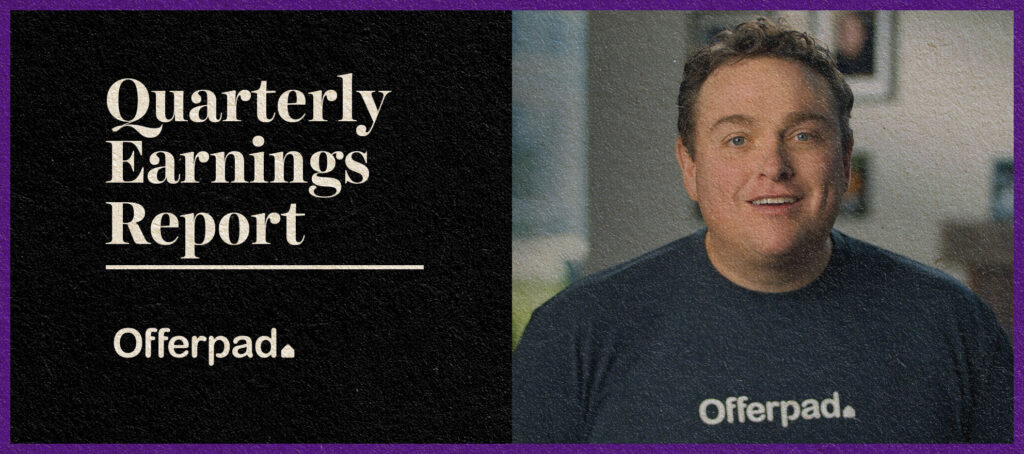In yet another blow for homebuyers, mortgage interest rates are soon expected to rise even higher.
The U.S. Federal Reserve announced on Wednesday that it will be raising its short-term interest rate by half a percentage point in its crusade to tame inflation. This means that mortgage interest rates, which are separate from the Fed’s rates but typically follow the same trajectory, will likely rise even higher.
That’s bad news for homebuyers who have been grappling with record-high home prices and rates now topping 5%. A year ago, rates were just under 3%. They’ve since surged, averaging 5.1% in the week ending April 28, according to the most recent Freddie Mac data, with many lenders reporting rates in the mid-5% range this week.
Higher rates can tack hundreds of dollars onto a monthly mortgage payment and tens of thousands of dollars onto a 30-year fixed-rate loan. That’s forcing many buyers to put their dreams of homeownership on hold as they can’t afford the punishing combo of high rates and home prices.
“We’re running out of precedents,” says Len Kiefer, Freddie Mac’s deputy chief economist. “It’s a real test for the market. We haven’t seen anything like this speed of [mortgage] rate increases in a generation.”
Someone buying a home today is likely to pay about 47% more for the same property compared with a year ago, when factoring in higher prices and rates. And that’s on top of all of the extra money they’re spending due to high inflation, rising gas and energy prices, and higher rents.
“Buyers are navigating what they can afford,” says Realtor.com® Chief Economist Danielle Hale. “They can’t afford the same price anymore.”
___
Watch: Mixed Signals for Homebuyers: This Week in Real Estate
How high will mortgage rates go?
Mortgage broker Rocke Andrews, of Lending Arizona in Tucson, believes rates will crack 6% this year. He’s seen rates rising to the mid-5% range already forcing many of his clients to look at cheaper homes or make lower offers.
Other real estate experts believe it’s unlikely that rates will go up that high this year, but certainly not impossible.
“Five-and-a-half percent is definitely within reach, 6% is a little bit of a stretch,” says Lawrence Yun, chief economist of the National Association of Realtors®. “But mortgage rate increases have been quite a surprise so far—and maybe there are more surprises left.”
It’s worth noting that mortgage rates hit 18.6% in 1981, when the Fed was also battling inflation, according to Freddie Mac. Experts are not anticipating they will hit anything near that high.
Mortgage rates might not even spike, at least immediately. They’re currently high because the market has long expected the Fed to jack up its own rates.
“They’re on an upward trajectory,” says Freddie Mac’s Kiefer. “They’ve been on a rocket ship up the last couple of months, but the pace may be flattening a little bit.”
If inflation calms, the Fed may not raise rates as much and mortgage rates could stabilize or even dip a bit. However, if inflation continues its bruising climb, the Fed may increase its rates by larger increments, which could lead to yet higher mortgage rates.
The Fed hopes that raising its interest rates with the largest increase in more than 20 years will cool inflation. When rates are higher, it makes it more expensive to borrow money or make purchases using credit. So if fewer people are buying products, it takes some of the pressure off, allows suppliers a chance to catch up, and gives prices some room to stabilize.
“Inflation is at a 40-year high—or a lifetime high for millennials and younger generations,” says Hale. “The Fed has to react to inflation to get it under control.”
Whether mortgage rates remain in the 5% range or rise even further, the upside for buyers is there is likely to be less competition for homes, with fewer bidding wars and lower offers.
Homebuyers submitted 11.1% fewer mortgage applications in the week ending April 29, according to the most recent data from the Mortgage Bankers Association. The number of home sales has also been falling.
“For a while there, you had to bid $30,000 to $40,000 over the asking price just to be considered,” says lender Andrews of Tucson-area homebuyers. Last month he started seeing those offers falling. “Now, I’ve had a few buyers whose purchase prices were the same as the asking price.”
However, home sellers will likely be slow to realize how much the housing market has shifted after watching their neighbors fetch astronomical sums for their properties. Many buyers, meanwhile, have hit their financial limits.
Home price growth is expected to slow
The days of double-digit home price growth are probably numbered, predict housing experts. Prices will likely continue to rise, but by just a few percentage points a year as buyers can’t afford any more. They could also flatten or even dip in certain real estate markets.
Nationally, median home list prices hit $405,000 in March, up 13.5% from the same time last year, according to Realtor.com data. However, the high rates are expected to slow down the pace of price growth.
“The housing market will cool down,” predicts NAR’s Yun. He expects sales will continue falling as well. “Buyers can simply not get a mortgage at these rates.”
They’re not expected to decline in most real estate markets, at least by much, because there are still so many buyers and investors who want homes. With a crushing shortage of homes for sale, there are not nearly enough to go around for those who want them.
“There are still a significant number of households who want to buy a home who didn’t want to deal with the market frenzy,” says Hale. If they jump back in the market, they “could keep prices from falling.”
Investors who aren’t reliant on mortgages could also keep prices strong. Baby boomers selling paid-off homes to downsize into homes they can buy outright and folks who built up a lot of equity in expensive parts of the country who are selling them to purchase properties in cheaper areas also might not need mortgages. And they may be able to support the high prices.
Sellers are also likely to be resistant to the idea of cutting prices after watching their neighbors’ properties sell for windfalls just a few months ago.
“Higher mortgage rates make it harder for buyers and sellers to agree on the price of a home,” says Hale. “Sellers have probably seen very high prices recently and have a high price in mind.”
What this means is that it’s becoming even more financially difficult for buyers, particularly first-time buyers without deep cash reserves, to become homeowners.
“This is a tough housing market for prospective buyers, and it’s gotten much tougher in an extreme hurry,” says Kiefer. “This is a big challenge.”



 Are You Interested in West Eleventh Residences Miami?
Are You Interested in West Eleventh Residences Miami? Are You Interested in ONE Park Tower by Turnberry?
Are You Interested in ONE Park Tower by Turnberry? Are You Interested in Diesel Wynwood Condominium?
Are You Interested in Diesel Wynwood Condominium? Are You Interested in Five Park Miami Beach?
Are You Interested in Five Park Miami Beach? Are You Interested in Cipriani Residences Miami?
Are You Interested in Cipriani Residences Miami? Are You Interested in Bentley Residences Miami?
Are You Interested in Bentley Residences Miami? Are You Interested in Baccarat Residences Brickell?
Are You Interested in Baccarat Residences Brickell? Are You Interested in Aria Reserve Miami?
Are You Interested in Aria Reserve Miami? Are You Interested in 888 Brickell Dolce & Gabbana | Miami?
Are You Interested in 888 Brickell Dolce & Gabbana | Miami? Are You Interested in 600 Miami WorldCenter?
Are You Interested in 600 Miami WorldCenter? Are You Interested in HUB MIAMI RESIDENCES?
Are You Interested in HUB MIAMI RESIDENCES? Are You Interested in WALDORF ASTORIA RESIDENCES?
Are You Interested in WALDORF ASTORIA RESIDENCES?